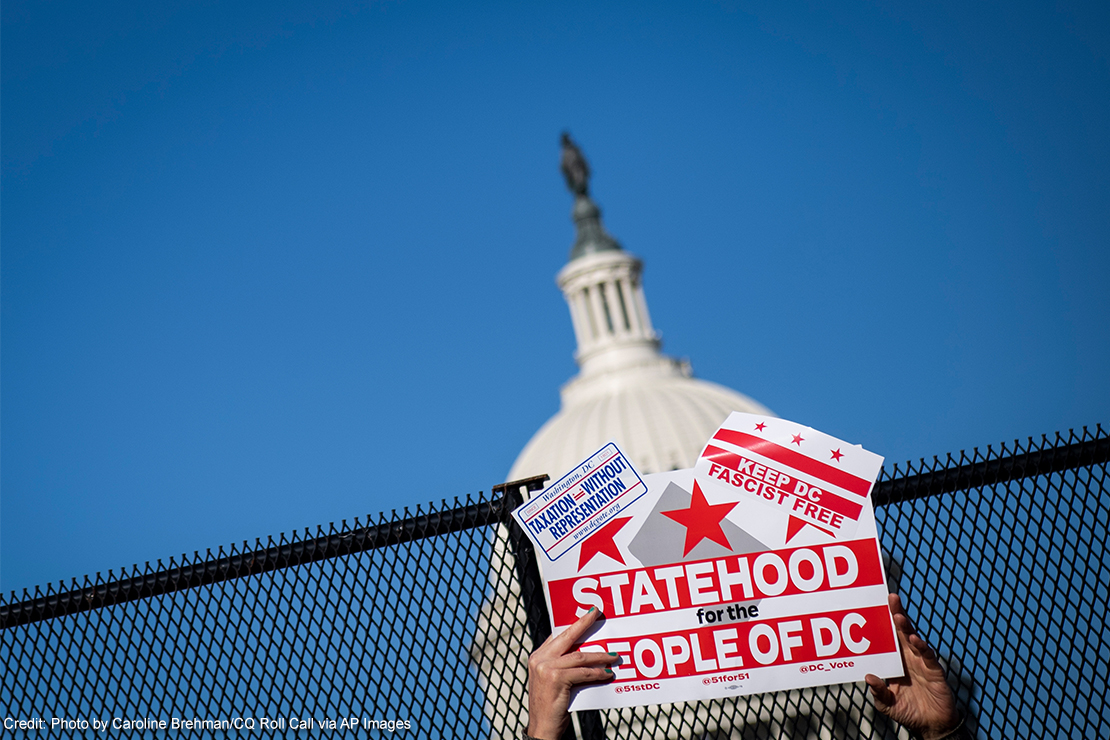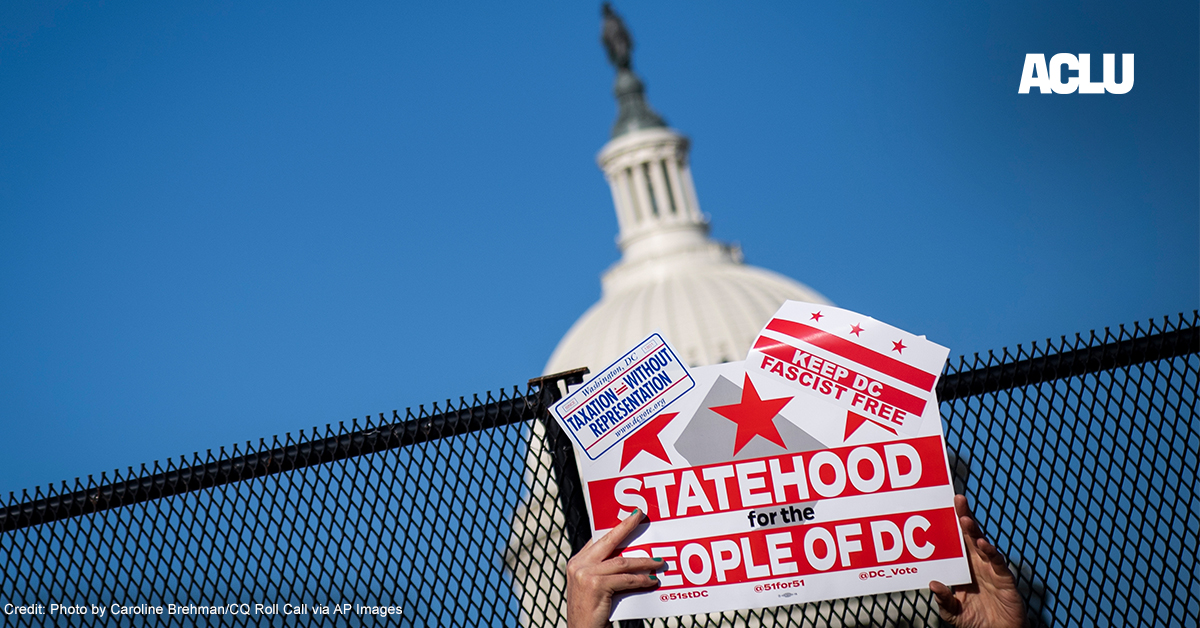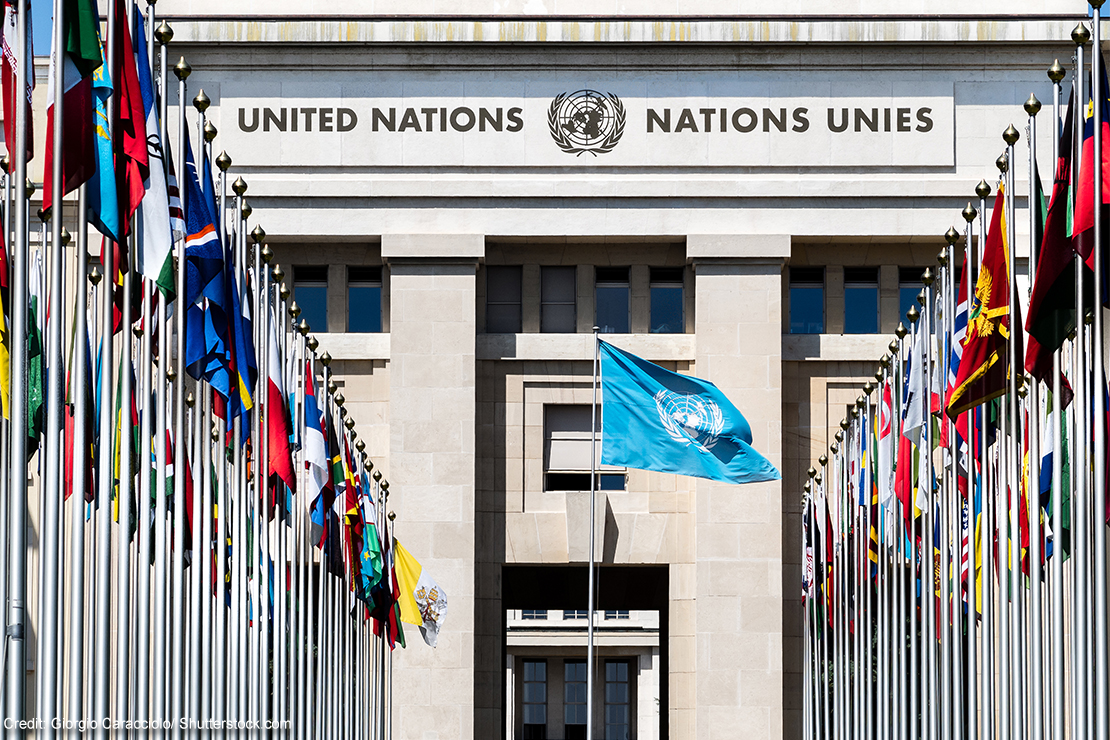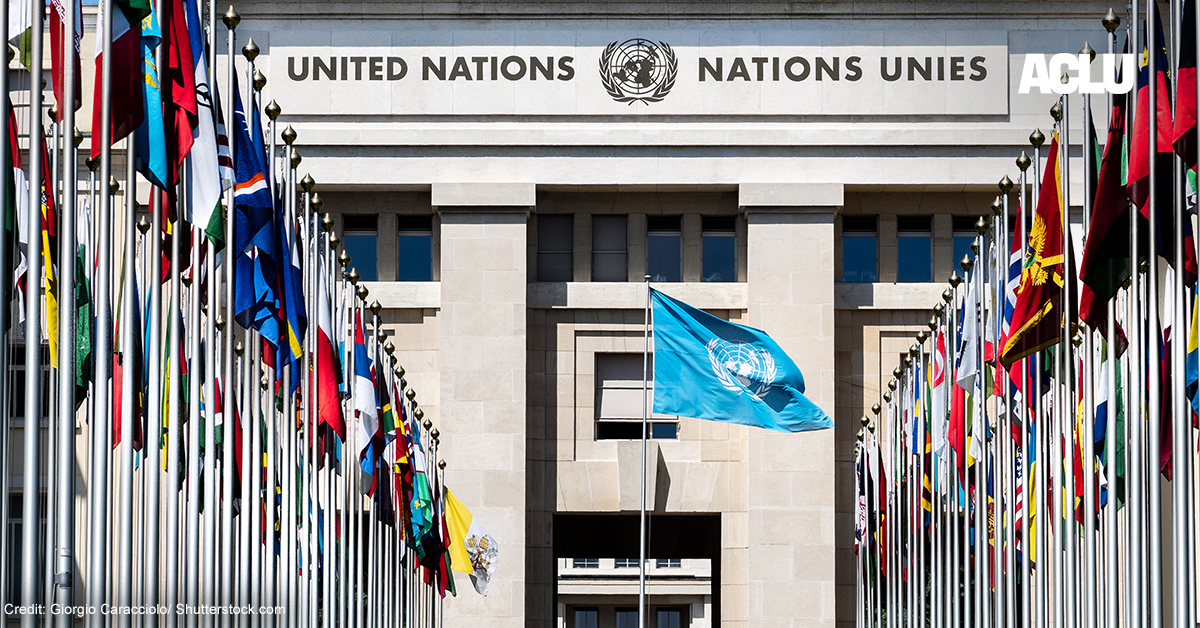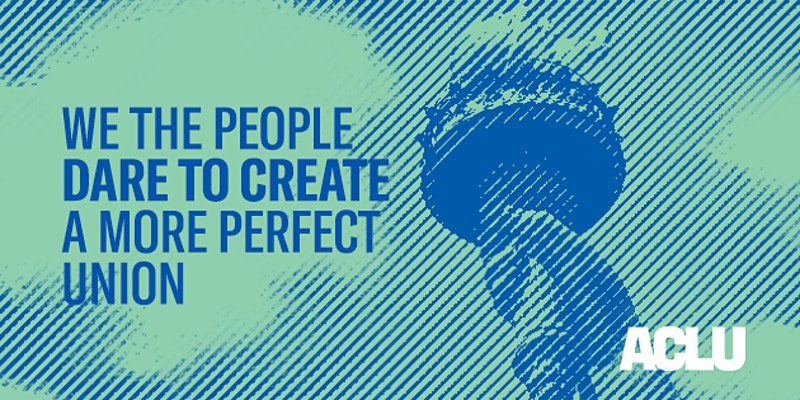JoAnn Kamuf Ward, Director of the Human Rights in the U.S. Project, Columbia Law School Human Rights Institute
Jamil Dakwar, Director, ACLU Human Rights Program
This piece originally appeared in Just Security.
It’s been a busy week for the Biden-Harris administration on the global stage. On Tuesday, Vice President Kamala Harris made the first official administration statement to the United Nations, speaking at the annual U.N. Commission on the Status of Women to underscore U.S. commitments to democracy and gender equality. Wednesday morning, the new administration made its first formal appearance at the U.N. Human Rights Council, as part of a review of the U.S. human rights record, known as the Universal Periodic Review, or UPR. This appearance was followed by an unprecedented racial justice event, co-sponsored by the U.S. Mission in Geneva and featuring prominent racial justice advocates, including Black Lives Matter founder Opal Tometi and Gay MacDougall, the current U.S. nominee to the U.N. Committee on the Elimination of All Forms of Racial Discrimination.
The crux of the UPR took place in November 2020, when governments from around the world made 347 recommendations to the United States to strengthen human rights compliance at home and abroad. While those recommendations were made during the last days of the Trump administration, the work of implementing them sits squarely with the new administration.
This week’s UPR appearance is significant because the Biden-Harris administration is representing the United States to articulate which of the recommendations the government is committed to implementing, which recommendations it will reject, and why. Some of this information was available earlier in March in a formal written report, which was cursory and anything but groundbreaking. The written report largely reflected a return to previous Obama-era responses to UPR recommendations (in 2010 and 2015). The new administration failed to correct the Trump administration human rights propaganda from 2020 or retract harmful human rights positions. Reading the Biden administration report, there are no signs of a radical shift on human rights or a new era of human rights re-engagement.
The U.S. appearance this week, therefore, marked the first real opportunity for the new administration to make specific human rights commitments, and show how the United States will operationalize the new direction articulated by Secretary of State Antony Blinken that “distinctions between domestic and foreign policy have simply fallen away. Our domestic renewal and our strength in the world are completely entwined.”
Given the egregious human rights record of the Trump administration, it is easy to set a low bar for measuring human rights progress. But, a return to the status quo is simply not an option. President Joe Biden won the election because of shifts in political power across the United States. Voter mobilization and the 2020 racial justice protests inspired by the Black Lives Matter movement helped pave the path to a Democratic victory. Demands for accountability for historic and ongoing human rights violations at home are also shaping the public discourse and legislative landscape in unprecedented ways. This administration has promised to “build back better.” Building better on human rights requires a foundation of robust permanent legal protections and enforcement mechanisms, consistent with international human rights law. Accordingly, the United States must take a fresh look at antiquated, and in many cases harmful stances on human rights.
In its written response to the 347 UPR recommendations, there were some hints that it could be a new day for human rights in the United States. For starters, racial disparities and poverty are addressed as problems that have social and structural causes. Importantly, climate change is a clear priority. The U.S. response also signals support for “sexual and reproductive health and rights” and paid parental leave. On the criminal legal system, the administration noted support for an end to the federal death penalty and to pursue reforms. The federal government also mentions concrete actions already taken to advance racial equity and prevent discrimination on the basis of gender identity or sexual orientation, as well as to improve conditions for immigrants and asylum seekers. There was brief mention of working with Indigenous communities, consistent with the United States’ qualified endorsement of the U.N. Declaration on the Rights of Indigenous Peoples.
During the Human Rights Council session, the United States went further to reaffirm its commitment to democratic values and human rights and pledged to uphold them “with resolve and humility” at home, centering racial justice and signaling that fighting systemic racism and all forms of racial discrimination are priorities:
American leadership on human rights must begin at home, in the way we treat each other, our neighbors, and the most vulnerable among us. We’re not perfect — far from it — but we are going to keep striving to live up to our highest ideals and principles. Among other challenges, we know it is long past time to confront deep racial inequities and the systemic racism that continue to plague our nation. We must, and we will, do more.
But there are some troubling warning signs permeating the U.S. report and UPR presentation. These should not be overlooked because they signal that fundamental change on human rights remains an uphill battle.
Let’s start with what the United States indicates we should not expect. Don’t hold your breath for a national action plan on racial justice. This is “not currently contemplated,” the response states, as the United States falls back on the idea that “the U.S. has comprehensive federal and state legislation and strategies to combat discrimination.” Yet, the reality that the patchwork of existing anti-discrimination laws has failed to advance true equality is just as apparent as ever. The United States remains similarly opposed to establishing a national human rights institution, proposing it relies on “existing domestic institutions that monitor human rights” — though, in practice, no federal institution or agency is mandated to serve as an independent domestic human rights watchdog.
There is also peril in the persistent unwillingness of the United States to embrace economic and social rights as free-standing rights, a position that dates back to the 1940s and 50s. This is not a time anyone should wish to return to. While the response espouses that the “U.S. supports the policy goals of reducing poverty and inequality,” legal recognition is not contemplated. This is consistent with the longstanding, narrow U.S. interpretation of human rights obligations and commitments, the United States reads to be limited to U.S. obligations under ratified treaties, as interpreted by the United States itself. Under the Trump administration, the Commission on Unalienable Rights was created to undermine core international human rights principles and create a new hierarchy of rights in an effort to limit reproductive freedom and the rights of LGBTQ people.
Some of the Biden administration’s written stances on human rights are troubling signals that human rights priorities for this administration could potentially just be more of the same — human rights rhetoric, without action to back it up. Since the inception of the United Nations, the United States has been a fickle friend of human rights. Even at the heights of U.S. support for human rights, the idea that human rights would be used as a yardstick to measure U.S. domestic policy was unpopular. Presidential administrations of all political stripes have consistently portrayed the United States as a human rights leader — a country to be emulated, not castigated.
If the past four years have shown anything, it is that the United States has a lot to learn. Human rights leadership will require a healthy dose of humility, and it will also require bold action. Substantive policy changes and an infrastructure to guide progress are critical ingredients to building better. For Americans now and for future generations.
On the domestic front, taking action in the following three areas has the potential to embed lasting change across the federal government, and at the state and local levels.
First, squarely tackling all forms of systemic racism and racial injustice must be a key priority of the administration. To affirm that Black lives matter, we need nothing less than transformative change. The United States must finally reckon with the horrific legacy of genocide and slavery, as well as confront white supremacy, which undergirds the systems and institutions that routinely harm communities, particularly Black, Brown, and Indigenous peoples.
Today, the U.S. joined with more than 150 countries to pledge support for global efforts to address systemic racism, emphasizing that this entails “a proactive, systematic approach to embedding fairness and inclusivity in decision-making processes, and redressing inequities in policies that serve as barriers to equal opportunity.” To make good on the pledge, this administration should adopt a plan of action within one year to fully implement the International Convention on the Elimination of All Forms of Racial Discrimination, which the United States ratified in 1994. The U.S. government must also address systemic racism and xenophobia more broadly, especially historic and current economic injustices, by supporting reparations, closing the wealth gap, and reinvesting in life-affirming alternatives to policing that will keep people of color, poor, and other marginalized communities safe and help them thrive.
While the administration’s actions to end inhumane family separation and detention policies are welcome steps, more action is needed to repair the harm and end the criminalization of migrants including through alternatives to detention and fair and humane immigration policy.
Second, the federal government should actively counter any efforts to selectively champion particular human rights by perpetuating a false hierarchy of rights, particularly taking care to secure the rights of historically marginalized groups, and promote social and economic protections especially the right to healthcare, adequate housing and clean water.
Third, to fully and effectively implement and honor U.S. human rights commitments, this administration should appoint a White House human rights czar to coordinate between domestic and foreign policy on human rights issues and lead serious and lasting reform. This includes legislation that cannot be easily dismantled by a future president with the stroke of a pen. An independent, well-resourced federal focal point on human rights with a human rights mandate has repeatedly been called for by civil and human rights advocates, and the international community. The Biden administration should update Executive Order 13107 to achieve this goal.
Looking outward, to demonstrate a new day for human rights and to lead by example, the United States must recommit to global engagement. This includes fully cooperating with human rights mechanisms, including special procedures of the Human Rights Council, and providing unimpeded access to detention facilities, including at Guantánamo Bay. Importantly, the United States should refrain from blocking accountability mechanisms against the United States or its allies, whether mandated by the Council or by other international bodies like the International Criminal Court (ICC). In this regard, the Biden administration must immediately lift Trump’s sanctions on the ICC and unequivocally reject threats and punitive measures against it. Ending U.S. forever wars abroad and militarization of policing at home would also make the United States a more credible voice on global human rights.
We are enthusiastic that a new era for human rights may be on the horizon. The United States takes an important step by sitting at the global table and meaningfully participating in reviews of its human rights record. The world will be watching what happens next as the Biden administration seeks membership in the Human Rights Council. By building a strong human rights culture and infrastructure at home and implementing UPR recommendations in collaboration with state and local governments and meaningful civil society participation — particularly centering impacted communities — the administration can forge new ground in addressing the root causes of human rights harms, which will ultimately benefit everyone.
https://www.aclu.org/news/human-rights/is-there-a-new-era-for-human-rights-on-the-horizon
Here's what we learned from the Biden-Harris administration’s first appearance before the United Nations.
